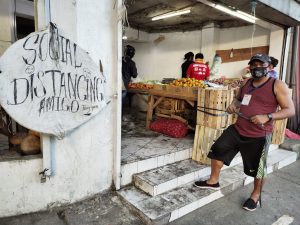The Philippines said this week it is aiming to come up with $1.5 billion to vaccinate around 60 to 70 million of its citizens within three to five years, or around 60 percent of the country’s 113 million population.
Carlito Galvez, Jr., a retired general and the country’s vaccine czar, said in a November 25 press briefing that only 20 to 30 million Filipinos would be vaccinated each year.
President Rodrigo Duterte had said previously he planned to provide COVID-19 vaccines to all Filipinos. The government, however, said the target figure should be enough for the Philippines to achieve herd immunity.
Galvez estimated that, in a best-case scenario, a vaccine would become available between April and June 2021, but that it may take until late 2021 or early 2022 for the government to obtain a vaccine for local distribution.
Some 35 million Filipinos have been identified by the national coronavirus task force to receive the vaccine first, Galvez said, including healthcare workers, police and military personnel, and the elderly.
On November 23, Finance Secretary Carlos Dominguez III told Duterte the Philippines would seek $1.5 billion for vaccinations through loans from multilateral agencies like the World Bank and Asian Development Bank, along with domestic sources and through bilateral arrangements with countries currently developing vaccines.
Dominguez said that those bilateral arrangements, which he hopes would cover about $275 million of the price tag, were “not completely negotiated.”
Francisco Duque III, the country’s embattled health secretary, told Duterte that vaccinating 60 to 70 million Filipinos would be enough for the country to achieve herd immunity – although the true number may be dependent on how effective a vaccine is.
“Herd immunity, Mr. President, is anywhere from 60 percent to 70 percent, according to the World Health Organization. If we’re able to reach that, we’re going to pretty much arrest the spread of this and COVID-19 will disappear from our society,” Duque said.
According to Galvez, the Philippines is currently negotiating with companies to provide the cold storage facilities needed to distribute some vaccines. The country’s coronavirus task force is asking the government to include $3.12 billion in the 2021 budget to account for vaccine logistics and distribution, including cold storage.
Vaccines manufactured by Pfizer and Moderna have proven up to 95 percent effective in their respective phase three trials. The Pfizer vaccine must be kept at minus 70 degrees Celsius, while Moderna says its vaccine can be kept at minus 20 degrees Celsius – around the temperature of the freezer in your kitchen – for up to six months.
The Pfizer vaccine could be difficult for the Philippines to import and the country has not finalized a preorder of the vaccine, although the Philippine ambassador to the United States has said the drugmaker has agreed to sell the vaccine to the Philippines once it obtains approval from the U.S. Food and Drug Administration.
The Philippines is still evaluating the possibility of acquiring vaccines from China or Russia, along with more than a dozen vaccine manufacturers in 10 countries.
Lawmakers cried foul earlier this month when the proposed 2021 budget contained just $52 million for vaccine procurement. Galvez has clarified this fund is “just for an initial 3 million vaccines for essential health workers.”
Still, the government’s initial inoculation plan is receiving criticism amid a larger COVID-19 response that has often appeared bungled and disorganized.
Officials say the vaccines will target major urban areas throughout the archipelago. Rural areas have had fewer cases of COVID-19, but residents of those areas live further from hospitals equipped to treat patients.
Duterte has also been criticized for staffing his coronavirus task force with military generals, giving the impression that health professionals did not have a voice in making decisions and were not regularly communicating with the public.
In August, Duterte made international headlines when he volunteered to participate in trials for a Russian vaccine that was roundly questioned over safety concerns. He retracted his offer days later.

































